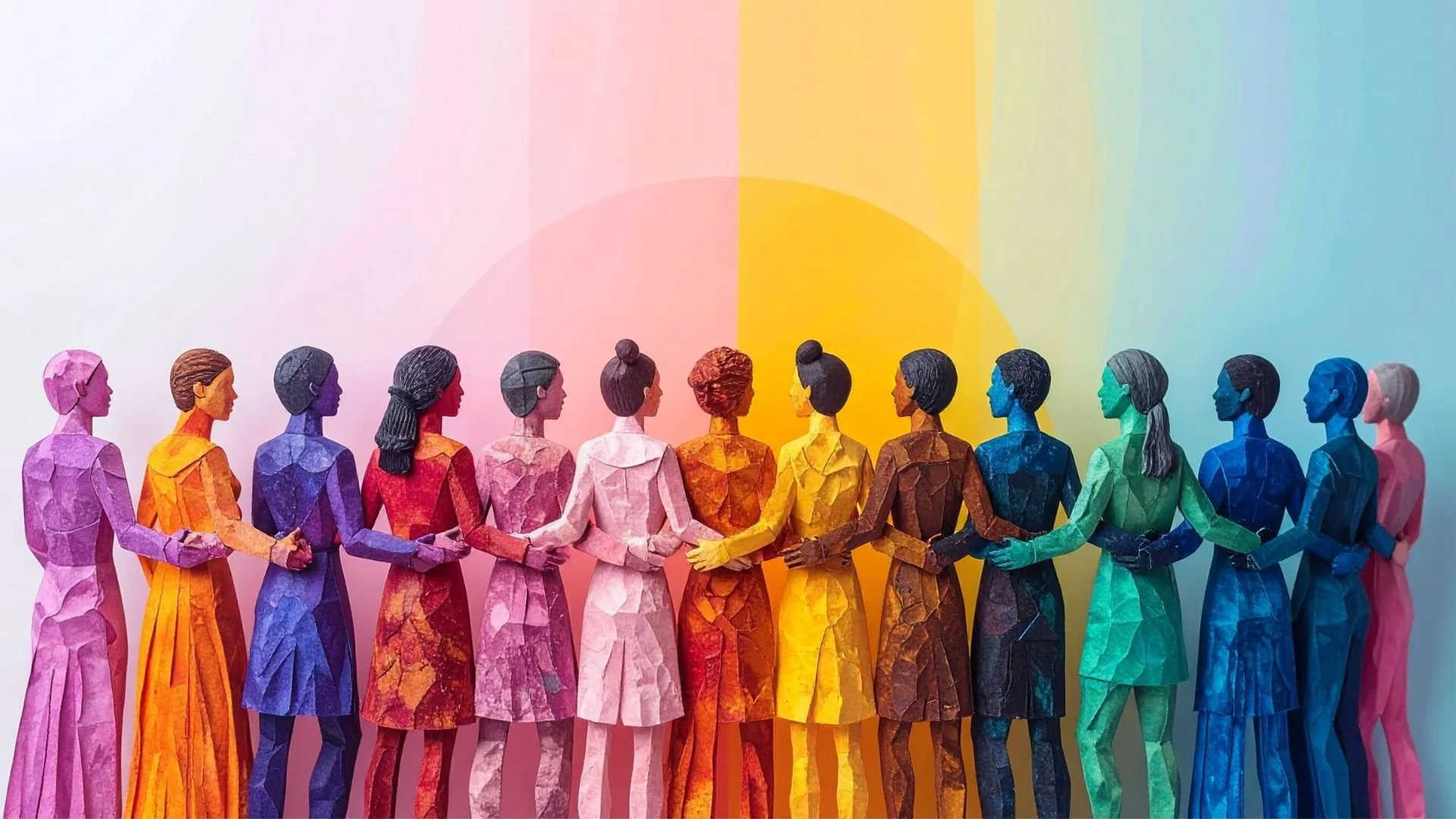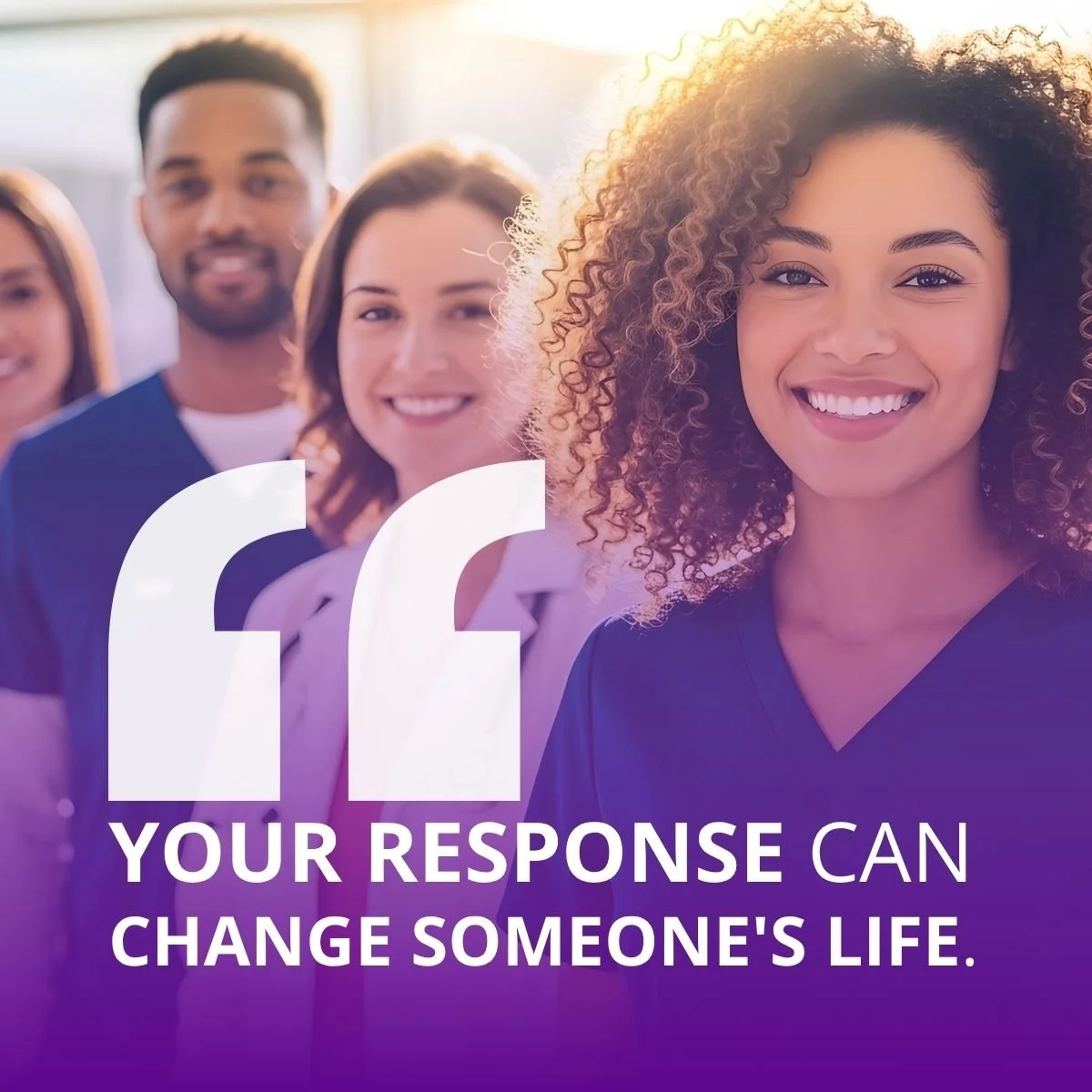Our Role in Ending Gender-Based Violence
/Nurses Standing with Survivors: Our Role in Ending Gender-Based Violence
Nurses stand at the frontline of healthcare. We're often the first point of contact for survivors of gender-based violence (GBV). We see the physical injuries, the emotional trauma, and the fear in someone's eyes when they're deciding whether to trust us with their story.
This 16 Days of Activism and beyond, Nursing Services of South Africa recognises the critical role nurses play in supporting survivors and preventing further harm. We also acknowledge the Women for Change movement mobilising on 21 November. Whilst we continue providing essential nursing care, we stand firmly with survivors.
Why Nurses Matter in the Fight Against GBV?
Survivors often enter the healthcare system through emergency departments, clinics, or routine appointments. They might come in with obvious injuries. They might present with chronic pain, depression, or anxiety. Sometimes they're seeking contraception or antenatal care.
Nurses create the environment where disclosure becomes possible. A few minutes of attentive, non-judgemental care can open the door to help. Your questions matter. Your documentation matters. Your referrals can save lives.
The statistics tell us that gender-based violence affects millions across South Africa. But statistics don't capture the moment when a patient finally tells someone what's happening at home. That moment often happens with a nurse.
Supporting Survivors Through Nursing Care
Recognition and Assessment
Nurses need to recognise potential signs of abuse:
Injuries inconsistent with the explanation given
Delays in seeking treatment
Partner who insists on staying present and answering questions
Frequent visits for vague complaints
Depression, anxiety, or PTSD symptoms
Reluctance to undress or be examined
Ask direct but sensitive questions in private. Use phrases like "I've noticed these injuries and I'm concerned about your safety. Has anyone hurt you?" rather than vague questions that allow for easy dismissal.
Documentation
Accurate documentation serves multiple purposes. It creates a medical record that can support legal action if the survivor chooses to pursue it. It helps other healthcare providers understand the pattern. It validates the survivor's experience.
Document:
Exact descriptions of injuries with measurements
The survivor's explanation in their own words (use quotation marks)
Your observations about behaviour and affect
Photographs if consent is given and protocol allows
All referrals made
Avoid interpretations or opinions. Stick to facts and direct quotes.
Immediate Safety
Assess immediate danger. Ask "Do you feel safe going home today?" If the answer is no or uncertain, activate your facility's protocol for high-risk situations.
Know your resources before you need them
Keep the GBV Command Centre number 0800 150 150 and ‘Please Call me’ to *120*7867# visible. This 24/7 service provides confidential support and connects survivors with emergency shelter, legal advice, counselling, and police assistance.
Practical Steps for Nursing Practice
Create Safe Spaces for Disclosure
See patients alone when possible
Ask routine screening questions of all patients in private
Use interpreters rather than family members
Display information about support services in bathrooms and private areas
Train all staff on trauma-informed care
Know Your Protocols
Every facility should have clear protocols for responding to gender-based violence. If yours doesn't, advocate for one. Protocols should cover:
How to conduct sensitive interviews
Documentation requirements
Mandatory reporting (where applicable)
Safety planning
Referral pathways
Follow-up procedures
Build Your Resource Network
Connect with social workers in your facility and community. Know which NGOs operate in your area. Keep updated lists of shelters, legal aid organisations, and counselling services.
The GBV Command Centre (0800 150 150) can help you find local resources. They support healthcare professionals as well as survivors.
When in need, call the 24-hour Gender Based Violence National Command Centre 0800 428 428 or send a ‘Please Call me’ to *120*7867# (free) for counselling and other services, including shelter.
Support Your Colleagues
Working with survivors of violence takes a toll. Nurses experience vicarious trauma, burnout, and moral distress. Create spaces where staff can debrief. Encourage each other to access employee assistance programmes. Recognise that this work matters and that caring for yourselves enables you to care for others.
When Leaving Isn't Immediate
One of the hardest lessons for healthcare providers is that survivors might not leave immediately. They might return to dangerous situations. They might refuse referrals or decline to press charges.
This doesn't mean your intervention failed. Planting seeds matters. Providing information matters. Showing respect and concern matters. Research tells us that survivors often make multiple attempts before leaving permanently. Each supportive interaction increases the likelihood they'll seek help later.
Never express frustration or judgement about a patient's choices. Simply say "I'm concerned about your safety. Here's information about resources if you need them. You can always come back and talk to me."
Moving Forward Together
Gender-based violence thrives when we look away. When we fail to ask questions. When we accept implausible explanations. When we don't document properly.
It ends when nurses use our position to create safe spaces, provide information, and connect survivors with help. When we advocate for better systems. When we support each other in this difficult work.
This 16 Days of Activism, and throughout the year, Nursing Services of South Africa commits to supporting survivors and the nurses who serve them. We stand with the Women for Change movement. We stand with our colleagues doing this vital work. We stand with every survivor who walks through our doors.
Emergency Resources
GBV Command Centre: 0800 150 150 (24/7, confidential, free)
Women for Change: Practical resources, legal support, survivor networks
Local social workers: Through your facility or Department of Social Development
SAPS Family Violence, Child Protection and Sexual Offences Units: At police stations
If you're supporting someone in immediate danger, don't hesitate. Make the call. Activate the protocol. Your nursing judgement and your compassion can change everything.
Campaigns and Resources for 2025
Women for Change: 21 November Mobilisation
Women for Change has organised a significant mobilisation for 21 November. The movement demands systemic change and accountability. It offers survivors practical resources, legal support networks, and connections with others who understand their journey.
Nursing Services of South Africa supports this movement whilst maintaining our commitment to patient care. Supporting survivors means showing up in multiple ways - through advocacy, through continued healthcare provision, and through connecting patients with resources. Visit Women for Change to explore guidance on navigating legal systems, finding safe shelter, and accessing support networks. Share resources using #WomenForChange and #UnburyTheTruth.
UNiTED 16 Days of Activism: 25 November - 10 December
This United Nations campaign runs from International Day of No Violence against Women to International Human Rights Day. South African government departments, NGOs, and healthcare facilities participate through awareness events, training sessions, and community outreach.
The UNiTE campaign "End digital violence against all women and girls" highlights how online harassment, cyberstalking, non-consensual sharing of intimate images, and other forms of digital abuse harm women and girls worldwide.
Nurses increasingly encounter patients whose abuse includes digital components. Partners who track their phones, who demand passwords, who threaten to share private images. This is abuse. These threats are real. Ask about digital safety. Recommend patients use safe devices when accessing resources. Share information about the UNiTE campaign using #NoExcuse and #ACTtoEndViolence.






